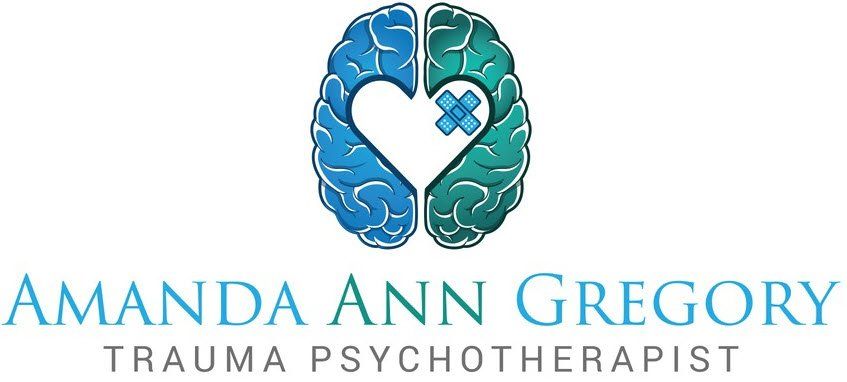Blog Layout
Benefits and limitation of Self-Help Groups
Self-help literature is a popular and profitable field. There are books available that address a variety of topics, such as managing emotion, treating trauma negotiating complex relationships, and increasing self-esteem. There are many benefits to reading self-help books and also many limitations.
Benefits
Here are four ways self-help books could potentially benefit you:
They Provide Quick and Easy Interventions.
When you’re facing a problem and looking for a simple coping strategy, a self-help book may be able to offer several suitable ideas. Books dedicated to self-help often provide many easy interventions you can try on your own. For example, Dr. Dennis Greenberger and Dr. Christine Padesky’s “Mind Over Mood: Change How You Feel by Changing the Way You Think” provides step-by-step worksheets that are designed to assist the reader to manage their moods. These worksheets are based on cognitive therapy methods and can be used on their own or in conjunction with professional therapy. There are many self-help books currently on the market that provide simple interventions for a wide range of problems. If you’re specifically seeking interventions or solutions, make sure to look for a book that provides exercises or strategies you can do on your own.
They Explain Scientific Data Using Accessible Language.
Scientific studies provide important data that may help you understand and manage whatever problem you are facing. However, scientific reports can often be difficult to understand due to their complex, scientific jargon. Self–help books, on the other hand, are written for a general audience. Self-help books either explain their jargon or try to avoid using jargon at all. Dr. Francine Shapiro’s “Getting Past Your Past: Take Control of Your Life with Self-Techniques from EMDR Therapy” uses layman’s terms to describe data on brain function and EMDR (Eye Movement Desensitization and Reprocessing). Because the language is presented in such an accessible way, anyone can understand how trauma impacts their brain and if EMDR techniques might work for them. In addition to their use of complex terminology, scientific data can often be written in a way that is long-winded and dull. Self-help books aim to present data in a way that is easy to read and entertaining. If you’re interested in scientific data, but would like to avoid trudging through a scientific report, a self-help book may be a good option for you.
They Help You Recognize That You’re Not Alone.
When you’re experiencing a problem, it may feel as though your experience is unique and no one can relate. Self-help books can provide true stories of people whose experiences or problems are similar to your own. Dr. Jonice Webb and Dr. Christine Musello’s “Running on Empty: Overcome Your Childhood Emotional Neglect” provides many narratives based on the experiences of their own therapy clients. These stories describe cases of emotional neglect and the impact of that neglect later in life. Reading the stories of others, and seeing your own story reflected there, may help you to feel understood and validated. If you’re feeling isolated, look for a self-help book that provides real life stories or case studies.
They Offer Inspiration.
It takes more than intervention strategies, scientific data, and validation to face your problems—you also need inspiration. Self-help books can act as a source of inspiration. They can help you to feel motivated and ready to work towards self-improvement. Jen Sincero’s “You Are a Badass: How to Stop Doubting Your Greatness and Start Living an Awesome Life” uses humor and direct language to keep you engaged and motivated. If you are seeking motivation, find a book that you can relate to and that personally inspires you.
Limitations
And here are four limitation of self-self books:
They Are One Size Fits All.
Self-help books are written for a general audience, and as a result they often make generalizations when giving advice or providing interventions. While an intervention may work for one reader, it may not work for everyone. For example, a self-help book about anxiety management may encourage its readers to listen to certain sounds in order to calm anxiety. But what if you experience the world more through visual or tactical experience? If so, you may be unlikely to benefit from an auditory intervention. Before selecting a book, be sure to look over the interventions provided and evaluate if they make sense for you and your specific needs.
They Cannot Diagnose You.
Self-help books do not only make generalizations about intervention strategies; they often generalize when it comes to symptoms as well. Readers might believe that based upon general descriptions in a book they can diagnose themselves. However, common symptoms do not equate a diagnosis—especially when it comes to medical and psychological issues. For example, a description of some common anxiety disorder symptoms may read similarly to a description of the effects of substance use or some other medical issue. There are many factors to be considered when diagnosing a patient, and it’s impossible to conduct an objective assessment when diagnosing yourself. If you are seeking a diagnosis, it is always important to consult a professional.
They May Use Misleading Marketing Tactics.
Many self-help authors and publishers produce books with the intention of helping people. It is important to remember, however, that their main goal is to sell books. Dr. Gerald M. Rosen, author of “Don’t Be Afraid: A Program for Overcoming Your Fears and Phobias,” reported that the jacket of his book reads, “In as little as six to eight weeks, without the expense of professional counseling, and in the privacy of your own home, you can learn to master those situations that now make you nervous or afraid.” Rosen reported that the jacket did not mention that only “50 percent of people succeed at self-administered treatment.” Misleading marketing tactics may be difficult to spot, so it’s a good idea to examine reviews and gauge the experiences of other readers for yourself.
They Are Not a Substitute for Professional Services.
Some self-help books claim that you can be cured from a medical or psychological illness, avoid bankruptcy, or represent yourself in legal matters without the involvement of a professional. They may be right in some cases, but they also may be wrong in others. Not every reader’s situation is the same, and some readers may need professional services. For example, a person with a simple legal issue might successfully represent themselves without hiring an attorney. They might gain enough knowledge through the reading of self-help literature alone. However, a person facing a more serious legal issue is likely to require the assistance of a qualified attorney. Be leery of self-help literature that strongly encourages you to avoid seeking professional services. If you are participating in professional services, it is also a good strategy to ask your hired professional if they have any self-help literature recommendations. Many professionals, especially mental health and medical providers, love to provide book recommendations as literature could increase the likelihood that treatment is successful.
Self-help literature has many benefits and can be a powerful vehicle for self-improvement. Yet, if you’re aware of the limitations of these same books, you are more likely to receive the potential benefits.
Get your Free eBook: 25 Anxiety & Trauma Coping Hacks
Amanda Ann Gregory is a trauma psychotherapist, national speaker, and author who provides specialize speaking engagements for conferences, companies, and communities. Schedule a speaking engagement
and follow on Instagram,
Facebook,
or YouTube.
Rosen, G.M. (1993). Self-Help or Hype? Comments on Psychology’s Failure to Advance Self-Care. Professional Psychology: Research and Practice, 24(3). 340-345.
Greenberger, D., Padesk, C. (1995). Mind Over Mood: Change How You Feel by Changing the Way You Think. New York: Guilford Press.
Gregory, A (2019). 4 Benefits of Sel Help Books. Symmetry Counseling blog. Retrieved from https://www.symmetrycounseling.com/therapy-chicago/four-benefits-of-self-help-books/
Gregory, A (2019). Four Ways Self-Help Books May Not Be Benefiting You. Symmetry Counseling blog. Retrieved from https://www.symmetrycounseling.com/therapy-chicago/four-ways-self-help-books-may-not-be-benefiting-you/
Shapiro, F. (2013). Getting Past Your Past: Take Control of Your Life with Self-Techniques from EMDR Therapy. New York: Rodale Press.
Sincero, J (2013). You Are a Badass: How to Stop Doubting Your Greatness and Start Living an Awesome Life. Philadelphia: Running Press.
Webb. J., Musello, C. (2012). Running on Empty: Overcome Your Childhood Emotional Neglect. New York: Morgan James Publishing.

By Amanda Ann Gregory
•
20 Apr, 2024
Christianity has never been the prescribed religion of the US. To state that the US is a Christian nation overlooks the rich diversity of religious beliefs and practices that exist and are celebrated in the country. These are six ways in which Christian privilege manifests in the US,
© 2024
All Rights Reserved | Amanda Ann Gregory, LCPC
Design & Consultation by Teresa Lauer, LMHC, GrowYourTherapyPractice.com *

